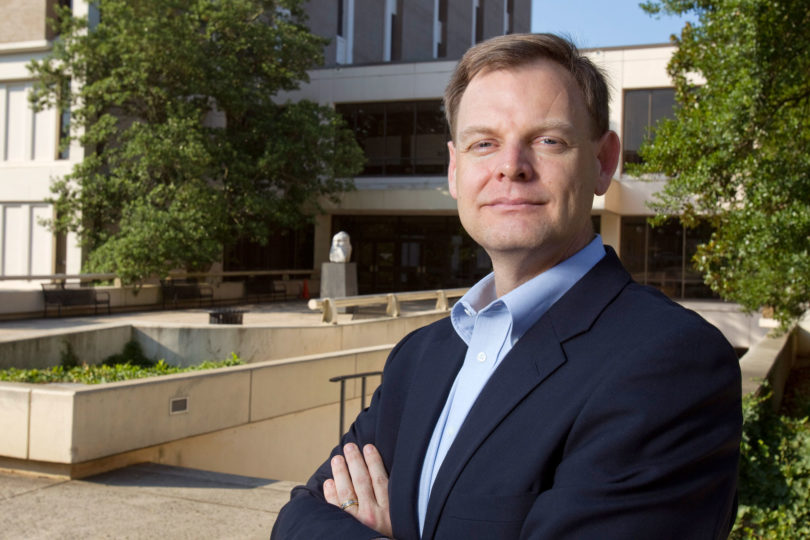Timothy M. Chester, who joined UGA from Pepperdine University one year ago, was recently promoted from chief information officer to vice president for information technology. Chester—who has never taken a computer course—turned an entry level programming job into a career. He now uses his sociology background to take a “people-first” approach to information technology. Columns talked with him about settling into his position at the university, projects he’s working on and the future of campus computing at UGA.
Columns: You describe yourself as “The Accidental CIO.” How did you go from sociology research to heading up information technology?
Chester: I learned programming skills in graduate school and took a programming job while working on my dissertation. By the time I finished, I was leading a team of developers doing critical projects—like web-enabling admissions and class registration. I was having fun helping Texas A&M use the Internet to change the way it conducted business and decided to stick with it.
Columns: You have a doctorate in sociology. How does that help with this job?
Chester: Information technology has to be about people first, and engaging people about their use of technology matters more than anything else. Sociology is about understanding people, what they believe, what they need and expect and what is sacred or profane for them. If you can understand how people really use technology, you can be more helpful to them. That’s what information technology organizations like EITS should be about.
Columns: How was your first year?
Chester: Overall, it has been a good year with a few surprises. I didn’t expect the university’s email system to have significant problems my first day or to discover a few weeks later that sensitive information on employees had been inadvertently disclosed. But, big projects like ConnectUGA have proceeded as I had hoped. I have also enjoyed tremendous campus support during my first year.
Columns: Is the Social Security number problem fixed now?
Chester: Given our long-term use of the SSN, some risks can only be reduced and will never be fully eliminated. The data file containing sensitive information got saved to a place open to the Internet. Technology did not fail. It was a process issue, a human issue. There is a need to be more cognizant of sensitive information. We have since worked to begin eliminating dependency on Social Security numbers whenever possible, and working to address the human side also.
Columns: Other than the new Banner system, an administrative application developed specifically for higher education institutions, what projects is EITS working on?
Chester: Support for research is a very big priority for me.
This university, which is launching new programs in medicine and engineering, has always emphasized interdisciplinary work between faculty. Investing in ways to support them is a strategic opportunity. We’re thinking about ways to connect them better and build better services so they can collaborate. To help with this, we’re going to dramatically increase Internet capacity.
High-performance or super computing is also an area in which to invest. Although we have some of the right pieces, we do not communicate well about what they are, how they can be used and how researchers can access them. That’s an opportunity.
Columns: What other projects are on the horizon?
Chester: We’re working to standardize sign-in so that when you’re on most UGA websites you don’t have to sign in again. If you’re logged into email, you shouldn’t have to sign in again to go to the employee self-service site. We are rolling this out in phases over the next two years.
Columns: With the current trend toward cloud computing and online classes, is your job at the university changing?
Chester: We used to think that the Internet portends an exclusive shift to an online world but we are finding that physical relationships really matter. It is the way we collaborate that is radically changing. Our communications are now in shorter bursts and multiple pieces. And we’re connected to each other at any time and any place through mobile devices. This is undermining the traditional role of gatekeepers to content, communications and services—and IT organizations must evolve. We are moving into a world where our community is depending less on us for the basics. I think that is okay.
Columns: What does that mean for higher education?
Chester: I’m worried about advocating online learning as the end all, be all of higher education’s future. There’s something very special about students collaborating with faculty experts working in the lab, in the field or in the library and bringing their innovations directly into the classroom each day. I benefited from that type of education and so did my children. I worry that an exclusive focus on technology-driven course delivery may undermine that type of experience.





